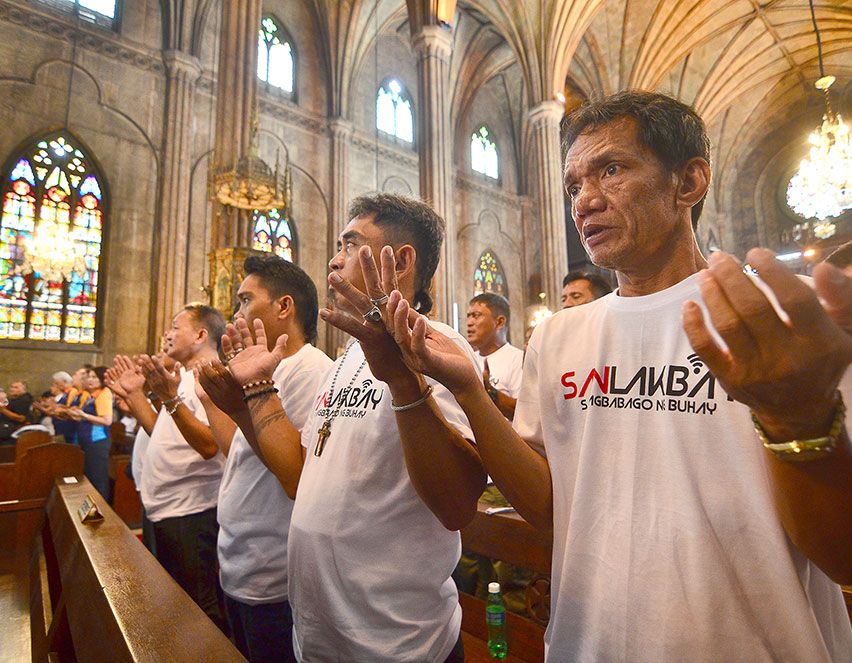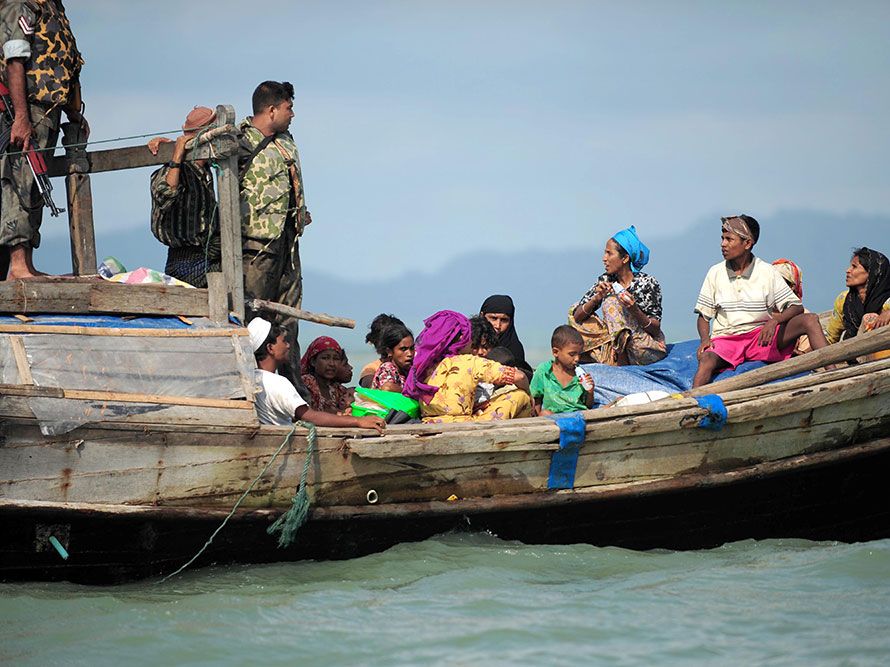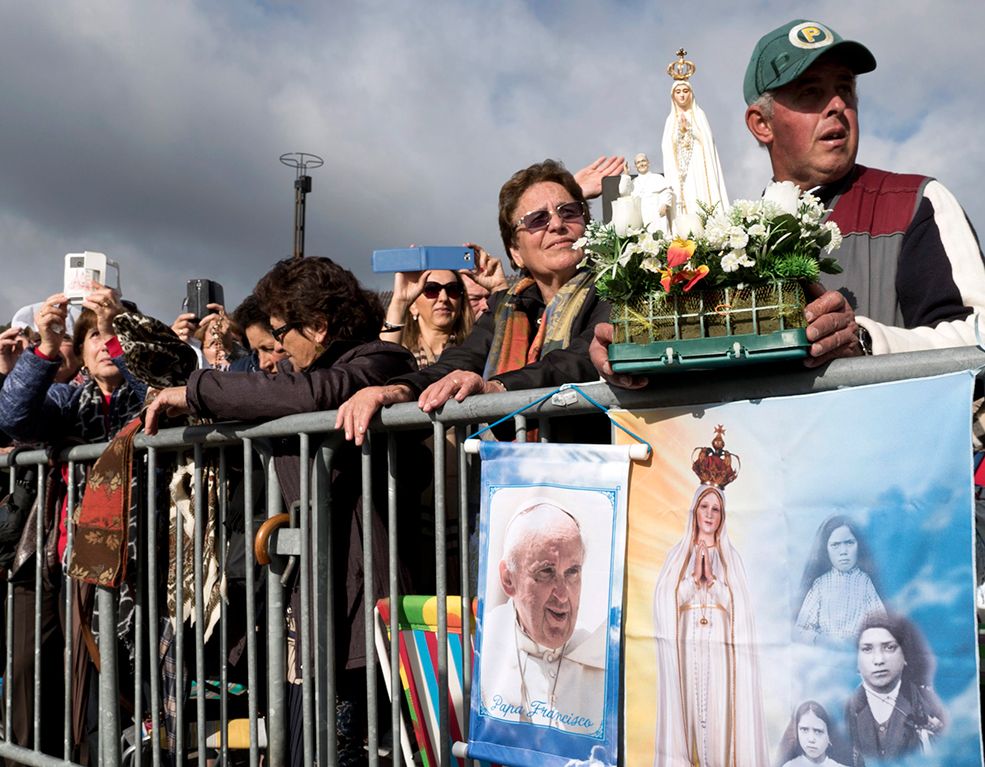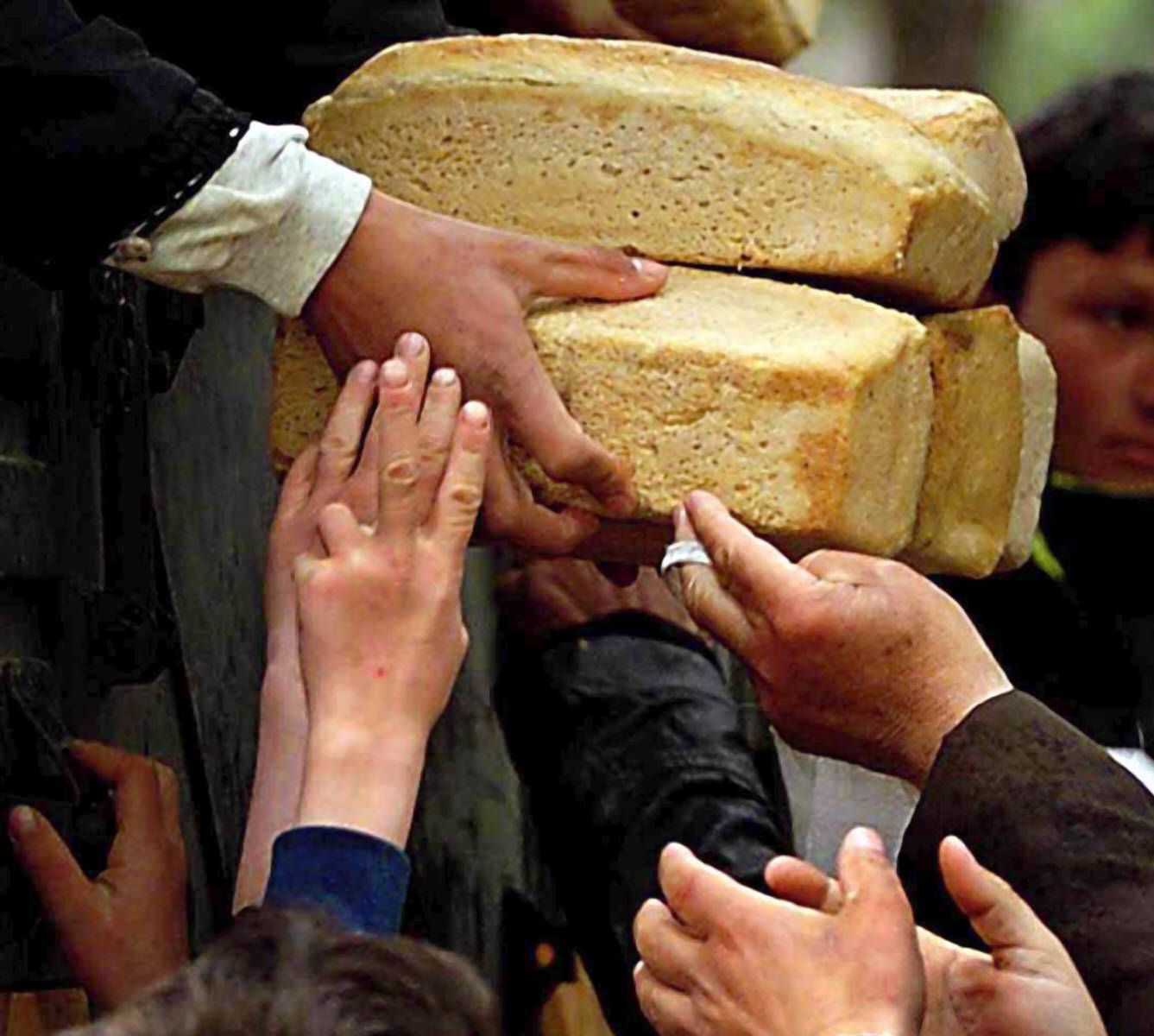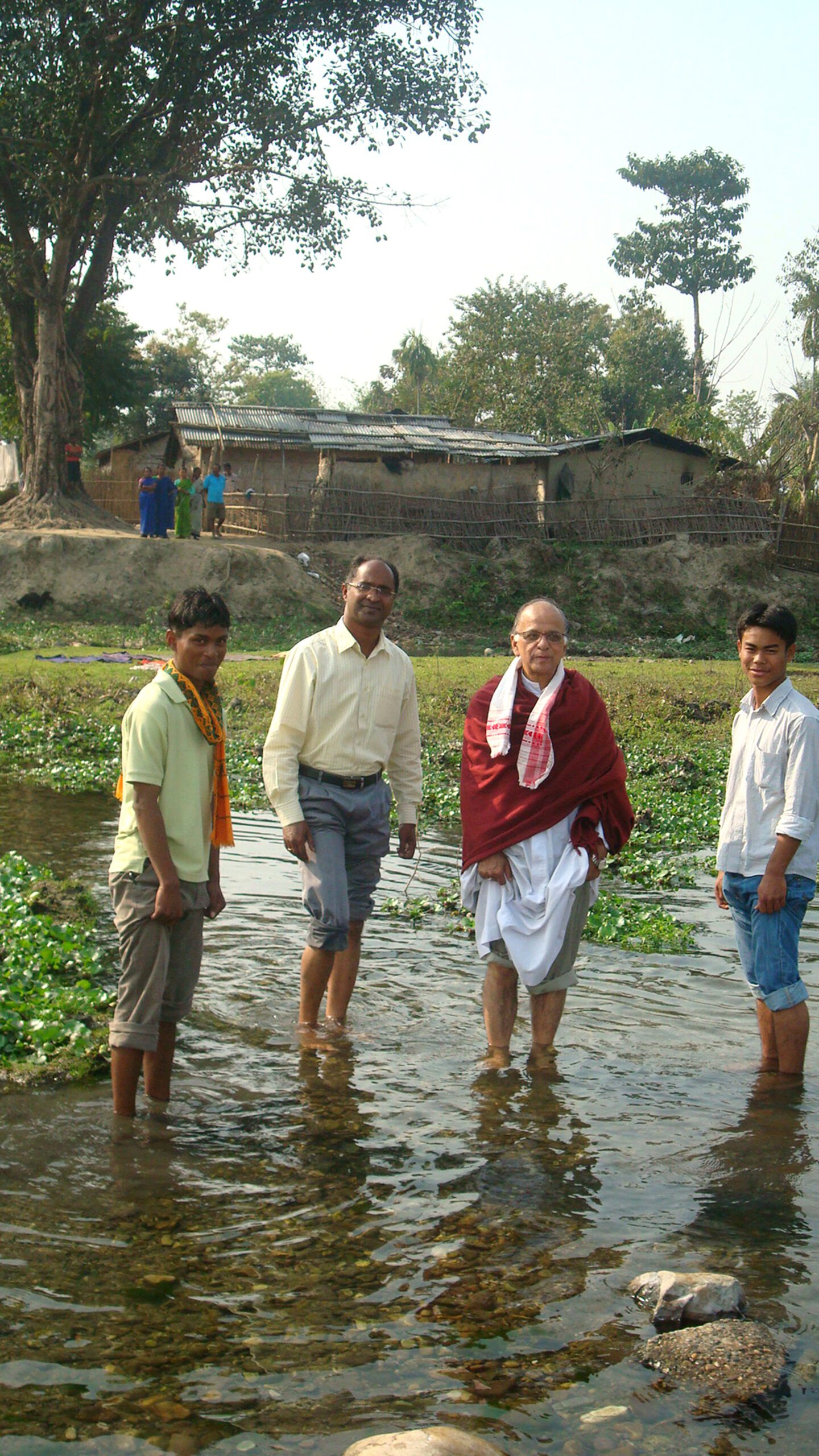In an epoch–making book published in 1968 titled The Age of Discontinuity – Guidelines for our Changing Society, Franz Peter Ducker, the father of the modern science of management, asserts that the potentialities and the dynamism of revolutions started in the 18th and 19th centuries such as representative democratic, the end to colonialism, engine and transport, communication via radio, have come to an end. A new era has set in, characterized not by the continuity of the past but by a radical novelty, and for the purpose of this article, we add that the event of Vatican II, as well as the growing presence and active role of women in human history have been vital stones in the mosaic of discontinuity which is unfolding before the eyes of all.
Pope John XXIII in Pacem in Terris (1963) had interpreted three major social events of those years as signs of the times – occurrences of extraordinary importance for the coming of the Kingdom and the configuration of a new world order in line with God’s dream. One of them was the rise of women to public office; in other words; women as full–fledged subjects of history, not less than their male counterparts. In the very year of the encyclica’s publication, three women were carrying the responsibility of premiership in their countries: Golda Meir in Israel, Indira Gandhi in India and Sirimavo Bandaranaike in Sri Lanka. As we probe into the factors that contributed to enhance the subjectivity of women in society, let us name some of them:
The Universal Declaration of Human Rights by the United Nations on 10th December 1948 in San Francisco, whereby all human beings, regardless of sex, religion and social status, were recognized as persons with equal dignity and subjects of rights and duties. Much has been achieved since then, with regard particularly to the promotion of those who, in a given society, have been sidelined or marginalized: for instance, women, minorities and the migrants.
Education accessible to all: For ages, education had been almost exclusively male oriented due to the fact that only men then took social, political and public responsibilities. Women, on the contrary, were home–bound and education for them was considered an unnecessary luxury. Such mentality was prevalent in all continents, and the role of tradition kept a heavy grip on any possible change. It was only after the Second World War that the possibility for higher education was extended to all – a move that reflected the change of mentality taking place, since education is of itself a great factor of subjectivity.
The distinction between sex and gender in the context of sociology and anthropology. Physical differences cannot be identified with masculinity and femininity, both highly conditioned by cultures and local traditions. Today we define such identity as gender. These cultural elaborations have been highly dominated by male prestige, power, control. Some jeopardize even women’s physical integrity such as female genital mutilation and domestic violence.
The rewriting of history from a female perspective: History has been written from the viewpoint of kings, generals, popes… and always with a masculine approach. Rewriting history from a feminine perspective is paramount for the sake of the truth, since women have played very important and decisive roles in the development of nations and societies. Yes, the re–visitation of women in history, with feminine sensitivity, is a strong element of affirmation.
Sexism and exclusive language are nowadays considered almost a crime and a kind of social sin. The expanding culture of inclusive language, which we now see becoming more and more adopted in the social sphere, is an important indicator of the rise of female subjectivity and it will surely contribute to promote an equitable way of relating between women and men.
The rise of women’s subjectivity
As ministers in the pastoral and intellectual spheres: From the point of view of ministry, women are, by far, in the front line of commitment. We see it in parishes, where women are the majority in liturgical activities, the keeping of the premises, the management of social activities in the fields of education, health, charity, catechesis, and so forth. We must here recall a historical reminder dealing with the evolution of mission activities. Right up to the time of Comboni (1831 – 1881), women were almost absent from the missionary arena. He discovered their immense ministerial missionary potentiality and in the Plan for the Regeneration of Africa, Comboni explicitly recognizes the urgency treasured by women in the realm of evangelization unknown to the male counterparts. Thus, he immediately started recruiting missionary women (The Sisters of St Joseph of the Apparition) and also founded his own female congregation which nowadays has taken on his very name: Comboni Missionary Sisters. In 1914, almost 60 years later, women missionaries were more than the male missionaries, and, as we wrote previously, with the coming of Vatican II and with the access of women to the world of academia, their intellectual preparation expanded exponentially even in the theological arena, a field firmly kept, up to that time, in the hands of ordained ministers. At the beginning of the Third Millennium, the relevance of women in all fields of theological investigation has grown expressively and the whole process is unfolding in favor of their contribution.
As auditors at an Ecumenical Council: When, in October, 1962, the great event of Vatican II took off, the absence of women was immediately felt by many as a jarring note. With the passing of time, pressure kept mounting on Paul VI to allow women in, but the reaction of not a few bishops and cardinals was very negative, since “tradition” was for them an insurmountable obstacle. In fact, the passage “women should keep silent in church” written by Paul in I Corinthians (14:34) was for them a non–negotiable praxis. Nonetheless, the moment was such a historical one and Paul VI thought that the ‘sign of the time’ defined by his predecessor, John XXIII, was relevant also in the life of the Church! Thus, from September, 1964 to August, 1965, 23 women (13 laywomen and 10 religious women) entered the hall of the Council as auditors but, with no right to speak during the general assembly nor to vote on documents and decisions. Nevertheless, a taboo had been broken! Their remarkable influence has finally been highlighted through several researches elaborated on the occasion of the celebration of the 50th anniversary of Vatican II.
As promoters of a re–visitation of the Bible and of the History: the first attempt at interpreting the Bible from women’s perspective goes back to the early 1890s and it came to light through the efforts of Elizabeth Cady Stanton, an Anglican laywoman, and of a group of 26 women she garnered around the cause. Their contribution marked the beginning of a new era though the reactions of the established churches were wild, for never had women dared so much! Stanton was highly ostracized and marginalized, but a new pathway had beeng opened. The fruits of such a daring enterprise started cropping up almost a century later. At the beginning of the Third Millennium, in all Bible commentaries, the feminine approach to the Word of God was featured broadly and the patriarchal bias and mindset, clearly denounced. The time is over when cultural prejudices and limitations were taken as God’s will and desire to be kept faithfully by all.
The rise of women theologians
As mentioned previously, action–oriented ministries had been, for ages, in female’s hands whereas intellectual activity – in this case, theological elaboration – was considered to be a male’s domain. This is no longer true and “discontinuity” is a trend that is quite visible as women theologians are already many and the number grows by the year. We now take a look at some connotations of a theology with a feminine touch.
Theological reflection: This is a different approach from traditional theology, which is highly systematic and dogmatic, doctrine–centered and hardly accessible to the grass–roots faithful. Through theological reflection, women theologians are interested in the life of the people interpreted with the light of Christian faith. Thus, the first step begins with what happens in daily life, what happens in the family, what happens among the youth, what happens in economic life. To correct the highly deductive method of the male–dominated theology, women promote an inductive theology, which comes from within a reflection of human life, which also needs enlightenment from the social sciences (sociology, psychology, and so on), so as to understand the social phenomenon. Such a theology is not primarily an abstract explanation of dogmas but a ministerial service of evangelization by detecting God’s presence or absence in daily life. It is the application of the four steps of the methodology known as Pastoral Cycle: experience, social analysis, theological reflection, and then life again through planned action. In this way, theology becomes again an aspect of the ministry of evangelization at the service of the Christian communities.
Historical and evolutionary sensitivity: Attention to history implies openness to evolution, since history is change and transformation. Unfortunately, history has been sidelined by the classic theology, which is highly metaphysics and based on unchangeable and not negotiable principles. Paying attention to history and to the transformation that takes place in it signifies that nothing remains the same, nothing is static. Women theologians are very much down to earth and quite committed to pay attention to life conditions and to the quality of life which assure dignity to all human beings.
Recovery of full humanity: Jesus has come so that humanity might have life and life in fullness. Thus, to enhance life to the full in humans entails great attention to the physical body as it enshrines the person. It calls on the importance of establishing healthy relationships. It stresses on the importance of psychological well–being. It means a theology liberated from the danger of spiritualism and abstractionism. Full humanity welcomes a pluralism of mentality, feelings and opinions. Full humanity also means attention to sexuality in the context of genuine and faithful relationships; full humanity brings forth the manifestation of God’s mystery, for the glory of God is the human being living the gift of life to the full.
Attention to the environment: Full humanity comes to birth not only in a historical context but also in a given environmental context. The earth houses humanity, and humanity cares for the earth; both are to interact positively so as to ensure the flow of life from one generation to the next. It is not difficult to see that such equilibrium has not been honored and, very often, people have related to the environment as a mere object, for mere use. Such approach has given rise to a great imbalance and changes, starting from the climate, use of resources, harmful chemicals and so forth. Here, it is possible to make a link between earth and women, how both are (mis)treated, and the negative consequences are before our eyes to see. A good news on this regard is that we, humans, have now understood that the environment cannot be treated anymore as an object at our disposal. The environment is not “something” to be used but is a real subject which influences our own life, for good or for evil.
Link of theology with mysticism and spirituality: This approach brings forth the importance of not only speaking about God but also of experiencing God’s presence and action within life. In the history of the Church, the majority of the great mystics are women: the Beguine’s Movement, Ildegarda of Bingen, Mechthild of Magdeburg, Claire of Assisi, Teresa of Avila, Catherine of Siena, Julian of Norwich, Veronica Giuliani, Theresa of the Child Jesus, Gemma Galgani, just to name some. Through lives rooted in the Spirit, these women have helped history develop and change occur, bringing forth a faith rooted in life which enables people to experience the presence of the divine within the fabrics of daily routine. A great contribution in this regard is being given by women religious all over the world as they strive to answer the call of Vatican II to be witnesses of the Risen Lord’s presence in their way of living and of ministering.
African women theologians
Africa is a continent where women have come a long way in the struggle to make life more human and human beings more capable of living life to the full. African women theologians, in particular, have been accompanying this journey from their own perspective and life experiences. Quite in touch with all the dimensions of life, African women theologians have been on the forefront of making “the cry of the people” heard and cared for, since, for them, this is the core of human life as well as of the Christian experience. Coming from a variety of backgrounds – biblical, ecclesiological, catechetical…– these women move within the intricate road map of a Church that still finds it difficult to recognize women as subjects and protagonists in the task of evangelization.
Starting from the early 1980’s, the rise in the number of African women doing Christian theology was constant. Before then, there was only one woman theologian publishing theological works on a regular basis, and this was Ghanean Methodist Mercy Amba Oduyoye. Kenyan Ancilla Kupalo, a member of the Congregation of the Sisters of Mary of Kakamega and staff component of the Pastoral Institute of Eastern Africa from 1972–75, followed suit. By mid–1980’s, several names came to the fore and, when in 1989, within the Ecumenical Association of Third World Theologians (EATWOT), the Circle of Concerned African Women Theologians was formed. There were over two hundred African women theologians doing research and authoring books. Their number kept increasing and, nowadays, many among them are women religious teaching in universities, seminaries and pastoral centres. A very outspoken one is Sister Teresa Okure, a member of the Society of the Holy Child Jesus (SHCJ), professor of New Testament and Gender Hermeneutics at the Catholic Institute of West Africa, Nigeria.
It is, indeed, a joy to know that scores of young women, both lay and religious, are now active in the various fields of theology, also encouraged by the two general assemblies of the Synods of Bishops for Africa, held in 1994 and 2009 which, in different manners, have addressed the urgency that the Churches in the continent be attentive at promoting women’s subjectivity in all spheres of life, particularly where they most influence the processes of justice, reconciliation and peace.
As stated previously, with regard to women theologians at large, even for African women theologians, the struggle is to bring about a different modality of encounter with faith and, most particularly, to enable their fellow women to enter into a new relationship modality in meeting the historical Jesus of the Gospels whose behavior with women in the context of the high patriarchal and static Jewish society, had a strong element of discontinuity.
We well know that the Jesus who has been shared with African people, and with women, in particular – since they have always been the majority of churchgoers – was Jesus the Warrior, the Conqueror and the King. This stance got reinforced in some African cultures where women have been, and still are, perceived as subservient to men and held in value only because they are the ones who carry and give birth to the future members of the clan. But African women are set to assert themselves within their own social settings and are determined to let their own experience of Jesus be given the right legitimacy it deserves.
To many African women, Jesus is a prophet who challenges the system, the status quo, as well as all social injustices and marginalization. This kind of Jesus strongly appeals to African women and urges them to work for their full liberation from within their own femininity, molded in the rich African context and vitality. African women see the Risen Christ as the One who does justice to widows and orphans and who welcomes and accepts everyone as they are and as equals, particularly those whom society treats as lowly and insignificant. Christ is welcomed as a personal friend, for He takes the women’s side by publicly breaking away from those yokes and burdens that keep them from enjoying to the full the freedom of God’s dream and reign.



